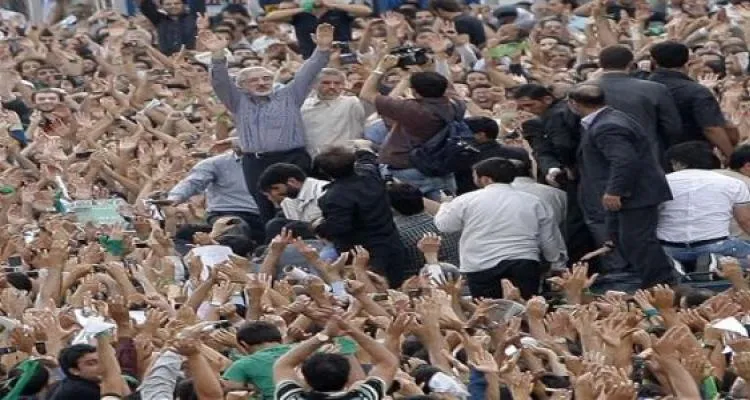

Moussavi: Suppressing students won't save Ahmadinejad - Summary
Tehran - Suppressing students and silencing academic circles will not save Iran's President Mahmoud Ahmadinejad, opposition leader Mir-Hossein Moussavi was on Sunday quoted as saying by reformist websites. "Even if you (Ahmadinejad) suppress the students, what will you do with the rest of your society," Moussavi said ahead of planned demonstrations Monday to mark the annual Student's Day in Iran.
In a statement on his website, Moussavi said the opposition movement against Ahmadinejad would continue despite the "constant bitter suppression of protesters."
"Those who claim that the (opposition) movement has ended should know that it has definitely not," Moussavi said.
While referring to Ahmadinejad, Moussavi said "it would be utopia to believe that ruling over the people against their will was possible."
In a meeting at his house in Tehran with opposition figures, Moussavi claimed that the performance of the Ahmadinejad government did not in accordance with Islamic teachings.
Speaking on the occasion of the Shiite Qadir feast commemorating the appointment of the first Shiite Imam Ali by the Muslim Prophet Mohammed as his successor, Moussavi said that one of the goals of the 1979 revolution was to realize the goals of Imam Ali, such as equality and brotherhood.
"When we compare the performance of this government with that of Imam Ali, we realize that it does not match at all," Moussavi told his guests.
He gave as an example the case of secular activist Behzad Nabavi, who despite poor health following a heart surgery, had to return to jail over charges of having planned to overthrow the Islamic establishment.
"The Imam Ali teachings are not achieved by words but in practice and through justice, fairness and kindness," Moussavi said.
"As mentioned in religious narrations, suppression is sometimes even worse than blasphemy," he added.
Also ex-president Akbar Hashemi-Rafsanjani on Sunday criticized the Ahmadinejad administration of having lack of tolerance for criticism.
The moderate cleric also blamed the government for having limited press activities and said that no social development could be feasible without sufficient freedom.
The Iranian government, in an effort to prevent coverage of renewed protests, on Saturday announced a prohibition on all foreign reporters and photographers from working in downtown Tehran for three days.
The Culture Ministry's Foreign Press Department informed the foreign media in via SMS that all permits issued for work in the city have been revoked from December 7-9, a de facto prohibition of covering Monday's protest rallies.
According to websites, emails and messages in social networking sites such as Facebook and Twitter, supporters of the opposition - especially the Green Movement supporting Moussavi - plan to avail themselves on Student's Day and resume protests against Ahmadinejad and his government.
According to several foreign press offices in Tehran, internet connections are either very slow or completely down. There was concern that the Tehran cellular phone network would be cut Monday to prevent communication among protestors and the foreign press.
Moussavis website warned supporters to be very careful after police and Revolutionary Guards warned of harsh action to be taken against protestors who would "misuse" the annual event for political aims.
The last protest demonstration was on November 4 on the occasion of the annual anti-US day. More than 100 protestors were reportedly arrested but most were released after a few days.
The wave of protests commenced after the June 12 presidential race which led to Ahmadinejad's re-election.
The opposition quartet led by Moussavi, former parliament speaker Mehdi Karroubi and former presidents Mohammad Khatami and Rafsanjani accused the government of fraud and have not recognized Ahmadinejad's re-election.
Street protests since then have led to a mass arrest of demonstrators, dissidents, journalists and former reformist officials.
More than 80 of them, including former officials, were sentenced to jail terms of up to 15 years. At least five have been sentenced to death, although all have the right to appeal the verdicts.
Source:

